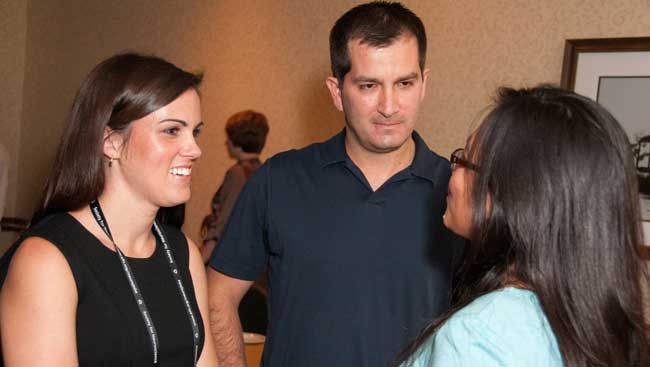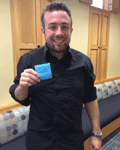
Many factors can contribute to your success as a postdoc. These three neuroscientists highlight what most positively impacted their postdoc experiences and long-term success. See what you can learn from them, and share your own “postdoc essentials” in the comments.
Access to the full article is available to SfN members.
Neuronline is a benefit of SfN membership. Renew your membership now to make sure you don’t lose access.
Speakers

Sherilynn Black, PhD
Sherilynn Black is an assistant professor in the Practice in Medical Education in the Duke University School of Medicine. She completed her BS in psychology (biology minor) as a Morehead-Cain Scholar at the University of North Carolina at Chapel Hill (UNC-Chapel Hill) and graduated with highest honors. She then completed her PhD in the department of neurobiology at Duke University and completed additional studies at UNC-Chapel Hill’s School of Education. Sherilynn currently serves as the associate vice provost for faculty development at Duke University School of Medicine.

Penny Dacks, PhD
Penny Dacks is the assistant director for aging and Alzheimer’s prevention at the Alzheimer’s Drug Discovery Foundation. Penny is responsible for all aspects of this program, started in 2012 to evaluate, communicate, and accelerate the development of scientific evidence for proposed strategies to promote health aging and prevent Alzheimer’s disease, related dementias, and cognitive aging. As part of this mission, Cognitive Valley was launched in 014 to provide an open resource to the public on the state-of-the-science behind any and all suggested preventative therapies Penny trained in neuroscience at the Mount Sinai School of Medicine, University of Arizona, and Queen’s University,) with individual fellowships from NIH, the Evelyn F. McKnight Brain Research Foundation, ARCS Foundation, and Hilda and Preston Davis Foundation. She is a member of SfN, the Gerontological Society of America, Endocrine Society, and Association for Women in Science.

Jean-François Gariépy, PhD
Jean-François Gariépy is the host and creator of NEURO.tv. In 2012, he completed a PhD on the neural basis of respiratory and locomotor control at the Université de Montréal. Francois Gariepy co-directed the Kickstarter campaign to fund NEURO.tv, and is active on Twitter.
0 of 5 articles left
Login
or
Become a Member
to unlock content


.png?h=1763&w=3125&la=en&hash=B2439C2768576BED6405672E5CD5CF8CB1AA375F)




